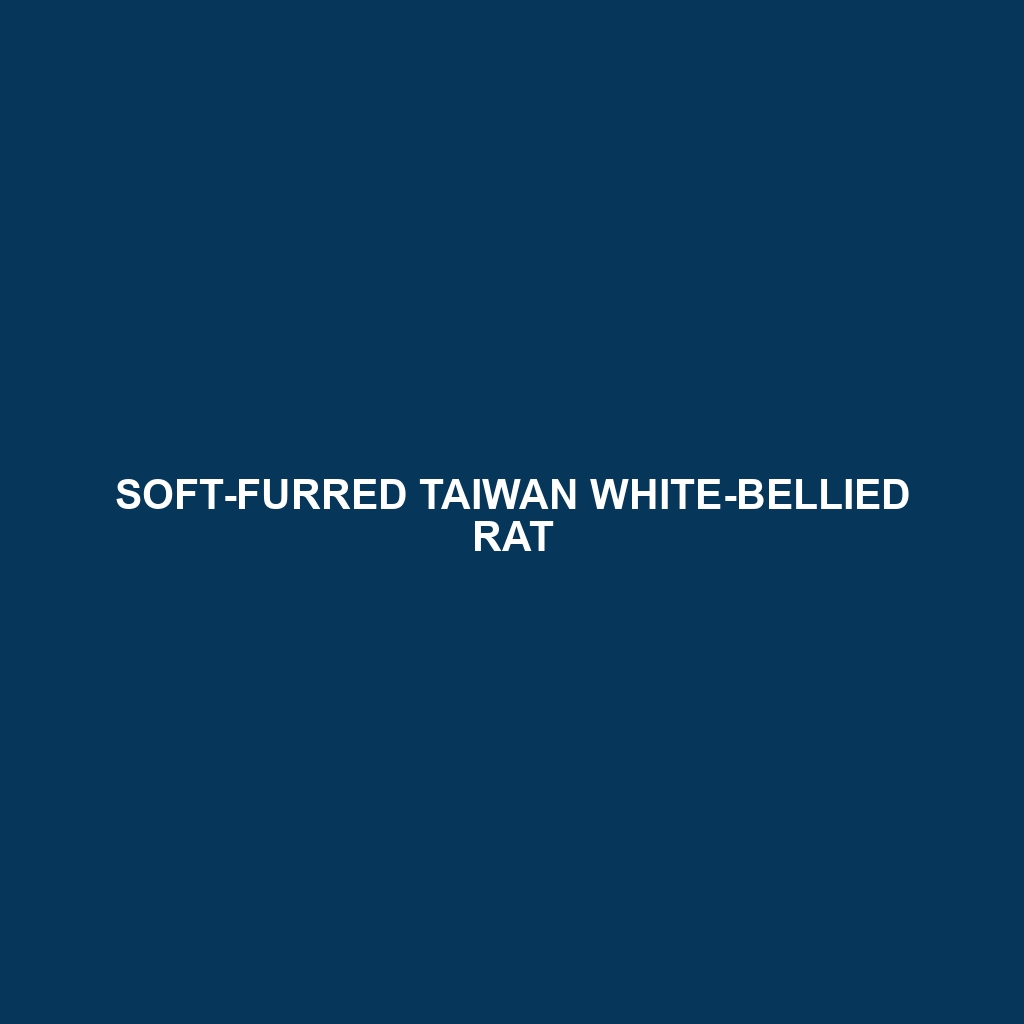Soft-furred Taiwan White-bellied Rat
Common Name: Soft-furred Taiwan White-bellied Rat
Scientific Name:
Habitat
The Soft-furred Taiwan White-bellied Rat primarily inhabits the subtropical and tropical forests of Taiwan. These rodents are typically found in mountainous regions, favoring dense bamboo thickets and humid environments. Their presence has been recorded at various altitudes, indicating a strong adaptability to different ecological zones within the island’s unique geographic landscape.
Physical Characteristics
This species is characterized by a medium size, typically measuring between 20 to 30 cm in body length, with a tail length of approximately 10 to 15 cm. The Soft-furred Taiwan White-bellied Rat exhibits a soft, dense fur that is usually a brownish or grayish color on the dorsal side, while its belly features a striking white coloration. Notable features include large, sensitive whiskers and rounded ears, which enhance its sensory perception in dimly lit habitats.
Behavior
The Soft-furred Taiwan White-bellied Rat is primarily nocturnal, showing increased activity during twilight hours and at night. These rats are social animals, often found in small groups, and exhibit playful behaviors that include grooming and chasing. Their active foraging habits and ability to climb make them adept at navigating their forested habitats, which plays a crucial role in their survival.
Diet
Feeding primarily on fruits, seeds, and roots, the Soft-furred Taiwan White-bellied Rat exhibits granivorous tendencies. They are also known to consume insects and other small invertebrates, displaying an opportunistic feeding behavior. Their foraging habits contribute to seed dispersion within their ecosystem, aiding in forest regeneration.
Reproduction
This species typically breeds throughout the year, with peaks during warmer months. The gestation period lasts approximately 21 to 30 days, resulting in 3 to 6 offspring per litter. The young are born blind and hairless, but they grow rapidly, becoming independent after about four weeks. Parental care is predominantly provided by the female, who remains attentive to her young until they are fully weaned.
Conservation Status
The Soft-furred Taiwan White-bellied Rat is currently classified as vulnerable by conservation authorities due to habitat loss and fragmentation linked to urban development and agricultural expansion. Preservation efforts are crucial to maintain the population and protect their native habitats.
Interesting Facts
One fascinating aspect of the Soft-furred Taiwan White-bellied Rat is its ability to thrive in varying altitudes, demonstrating resilience in changing environmental conditions. Additionally, they are noted for their intriguing vocalizations, which range from soft chirps to louder calls, especially during social interactions.
Role in Ecosystem
The Soft-furred Taiwan White-bellied Rat plays a vital role in maintaining ecological balance within its habitat. As a seed disperser, it helps facilitate plant reproduction and forest regeneration. Furthermore, this species serves as prey for various predators, thus contributing to the food web dynamics of Taiwan’s forest ecosystems.
